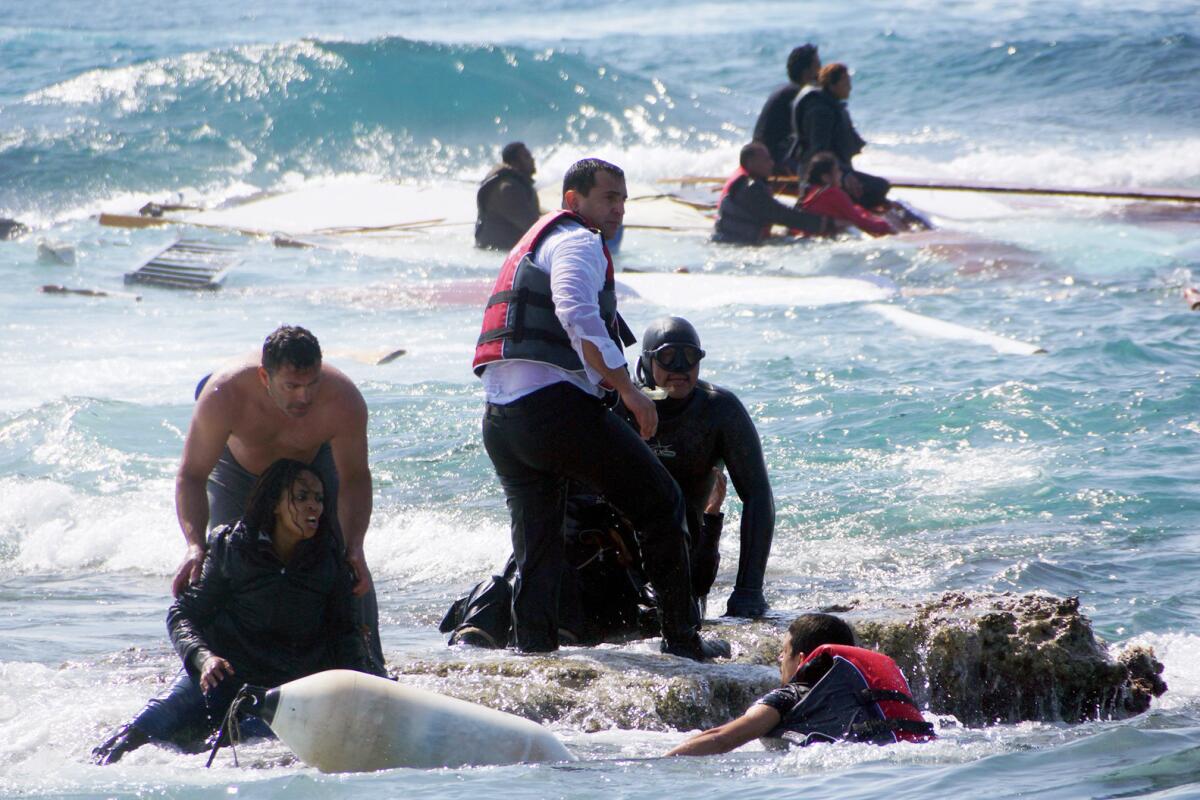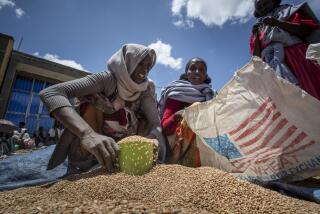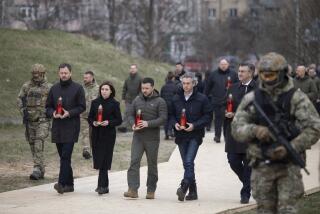Orwellian: U.N. inquiry condemns spying, torture, abuse in Eritrea

Greek army Sgt. Antonis Deligiorgis, left, rescues migrant Wegasi Nebiat of Eritrea from the Aegean sea on the island of Rhodes on April 20. Hundreds of thousands of Eritreans have fled their homeland.
The government of Eritrea has committed gross and systematic human rights abuses against a large part of the population, according to a United Nations report released Monday.
The East African nation has seen hundreds of thousands of people flee, with hundreds of them eventually dying at sea as they desperately seek to reach Europe aboard unseaworthy vessels.
The U.N. portrait of life in Eritrea is Orwellian: People live in a state of constant fear. Dissent is forbidden and anyone who speaks out against the government is jailed. A pervasive and sinister spy network has infiltrated all levels of daily life. People are forced to serve indefinitely in the military.
Neighbors spy on neighbors. Even family members fear and distrust one another, according to the report. Repression is organized and systematic.
“When I am in Eritrea, I feel that I cannot even think because I am afraid that people can read my thoughts and I am scared,” one witness told a commission of inquiry set up last year to investigate the nation’s human rights abuses.
The commission, created by the United Nations Human Rights Council, found that the Eritrean government could be guilty of crimes against humanity and called for strong international action to stop the abuses.
“As a result of this mass surveillance, Eritreans live in constant fear that their conduct is or may be monitored by security agents, and that information gathered may be used against them leading to arbitrary arrest, detention, torture, disappearance or death. It is not law that rules Eritreans, but fear,” says the 500-page report, which details extrajudicial killings, disappearances, arbitrary arrest and imprisonment, and forced conscription in the military or civil service.
A large proportion of the population of 6.5 million faces force labor and imprisonment, according to the report, which contained gruesome sketches of torture provided by a survivor.
In a catalog of horror, one sketch showed a man hogtied and suspended from a tree, face down. Another showed a man suspended upside down from a pole by his elbows, tied at the wrists and ankles. A third drawing showed a man with his elbows drawn up high behind him and tied to a tree, with just his toes touching the ground.
“The commission finds that the use of torture is so widespread that it can only conclude it is a policy of the government to encourage its use for the punishment of individuals perceived as opponents to its rule and for the extraction of confessions,” the report says.
“Arrests are often unjust, unpredictable, unreasonable and disproportionate. In most cases, people are arrested and detained for reasons that are arbitrary to such an extent that no one can possibly identify the law that might have been broken.”
The report says many prisoners have no idea why they were arrested and imprisoned.
Satellite images of military camps and detention camps are also shown in the report.
The report says Eritreans were likely to face forced labor “similar to slavery” during their lives, and it was so prevalent that every section of the economy depended on it. There had been only a few cases of people protesting against the government, but they were ruthlessly crushed, with demonstrators being killed by security forces or imprisoned.
“Faced with a seemingly hopeless situation they feel powerless to change, hundreds of thousands of Eritreans are fleeing their country,” the report says. “In desperation, they resort to deadly escape routes through deserts and neighboring war-torn countries and across dangerous seas in search of safety. They risk capture, torture and death at the hands of ruthless human traffickers.”
The report calls for international protection for people fleeing Eritrea.
Follow @robyndixon_LAT on the web for news out of Africa
More to Read
Start your day right
Sign up for Essential California for news, features and recommendations from the L.A. Times and beyond in your inbox six days a week.
You may occasionally receive promotional content from the Los Angeles Times.






